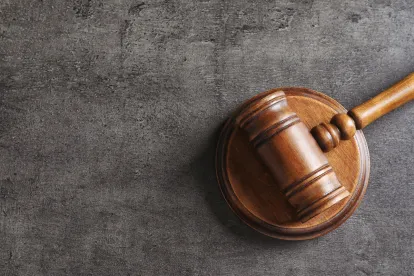DETROIT -- Strip searches are routinely performed by law enforcement officers of all types. This ranges from police to prison guards, as well as to TSA agents at airports in the United States.
Private security guards also perform strip searches, including in malls and retail stores.
While some strip searches are legal, others violate the person’s constitutional rights. In general, people have a reasonable expectation of privacy.
A public officer or private guard cannot simply conduct a strip search without a proper legal basis. When an illegal strip search occurs, the victim can file a lawsuit seeking compensation for the violation of protected rights.
The basis for most illegal strip search lawsuits is a violation of the Fourth Amendment of the U.S. Constitution. The text of the Fourth Amendment states:
“The right of the people to be secure in their persons, houses, papers, and effects, against unreasonable searches and seizures, shall not be violated, and no warrants shall issue, but upon probable cause, supported by oath or affirmation, and particularly describing the place to be searched, and the persons or things to be seized.”
The key words in the Fourth Amendment as it relates to an unlawful search are “unreasonable” and “probable cause.” Probable cause is a higher standard than reasonable suspicion. An officer does not have the right to search a person simply because there was a basis for stopping that person. In fact, most illegal strip searches are performed on people who are legitimately stopped or apprehended, but there is no legal basis to perform a subsequent search.
The main requirement is if the person being searched had a reasonable or legitimate expectation of privacy. Probable cause is required only when there is a reasonable expectation of privacy. When a search is disputed, what is “reasonable” is often determined by a judge or jury.
There are often even disputes as to what constitutes a strip search in the first place.
Different parties often have varying definitions of what constitutes a strip search. And, the context of each type of search may vary from one person to another.
For example, a prison guard performing a strip search may have one definition in mind that involves a physical search of the inmate’s body. Others may have broader definitions as to what they define as a strip search. Case law, both state and federal, have examined a variety of situations and fact patterns and their decisions form the basis of what is legal and what is not.
Some case law holds that complete nudity is required to be constituted as a strip search. Other cases hold that it is a lesser degree, and that a strip search can be illegal without the person being totally naked. There are many cases that also address the degree of the search itself and how invasive it is on the person being searched. This can vary on the type of crime suspected and the urgency to perform the search to preserve potential evidence against the person.
There have been many illegal strip search lawsuits filed throughout the United States. Most are based upon violations of the Fourth Amendment when asserted against a governmental agency, or person acting on behalf of the government. Other claims are brought under an invasion of privacy theory, and this theory is frequently used in cases against private individuals and entities.
In addition, there have been several class action lawsuits filed by prisoners and inmates at correctional facilities. These cases allege that a large number of inmates were illegal searched by prison staff and correction officers. Several of these lawsuits have resulted in substantial class action settlements, including a $ 53 million settlement against Los Angeles County for illegal strip searches of thousands of women by law enforcement personnel.
Individual lawsuits seek compensatory damages for the harm suffered by the victim. This includes both physical pain and suffering as well as mental anguish. The damages inflicted upon the victim often cause serious and permanent psychological harm.
Lawsuits hold the wrongdoers accountable for violating a person’s constitutional rights. They also serve as a deterrence to future unlawful actions. This helps to protect every person’s right to be free from an unlawful search and curbs systematic illegal actions of law enforcement.
Sources:
https://buckfirelaw.com/case-types/sexual-abuse/illegal-strip-search/




 />i
/>i

